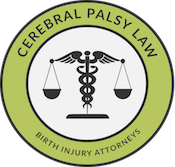Michigan Birth Injury Lawyers Representing Victims with Hypoxic Ischemic Encephalopathy / HIE from the Misuse of Pitocin and Cytotec
Problems involving the misuse of the labor induction drugs Pitocin and Cytotec commonly cause hypoxic ischemic encephalopathy, a dangerous neonatal brain injury that results from oxygen deprivation. Researchers have long considered the use of Pitocin and Cytotec risky to maternal and neonatal health, and medical professionals must adhere to strict guidelines in the non-elective, emergency delivery situations that necessitate their use. When a child suffers a birth injury and/or HIE from the misuse of Pitocin or Cytotec, it is medical malpractice.
Throughout this page, our Michigan birth injury and HIE lawyers will discuss the implications Pitocin and Cytotec may have on maternal and fetal health. The birth trauma lawyers at Michigan Cerebral Palsy Attorneys have decades of experience winning multimillion dollar birth injury settlements, and our team is committed to securing the funds necessary for clients to have lives of rehabilitation, equal access, and well-being. Should you have any concerns, questions, or case inquiries, we encourage you to reach out to our Michigan birth trauma attorneys for legal help. Our legal and medical team will review your case free of charge in order to determine your legal options. You may contact our Michigan hypoxic ischemic encephalopathy (HIE) lawyers in any of the following ways:
Fill out our online contact form here
Call our birth injury law firm toll-free at (888) 592-1857
Speak with a live representative by pressing the Live Chat tab to the left
Hypoxic Ischemic Encephalopathy (HIE)
Hypoxic ischemic encephalopathy is a type of infant brain injury that occurs from oxygen deprivation around the time of delivery. The oxygen deprivation characteristic of hypoxic ischemic encephalopathy generally results from hypoxia (a shortage of oxygen in the fetus’s blood) and ischemia (decreased flow of oxygenated blood to the fetus’s brain). Some of the injuries and conditions known to result from hypoxic ischemic encephalopathy include cerebral palsy (CP), neurodevelopmental impairments, learning disabilities and intellectual challenges, seizures, and periventricular leukomalacia (PVL). The only known treatment for hypoxic ischemic encephalopathy is the hypothermia treatment, which consists of lowering a newborn baby’s body temperature down in order to halt the progression of the brain injury.
is a type of infant brain injury that occurs from oxygen deprivation around the time of delivery. The oxygen deprivation characteristic of hypoxic ischemic encephalopathy generally results from hypoxia (a shortage of oxygen in the fetus’s blood) and ischemia (decreased flow of oxygenated blood to the fetus’s brain). Some of the injuries and conditions known to result from hypoxic ischemic encephalopathy include cerebral palsy (CP), neurodevelopmental impairments, learning disabilities and intellectual challenges, seizures, and periventricular leukomalacia (PVL). The only known treatment for hypoxic ischemic encephalopathy is the hypothermia treatment, which consists of lowering a newborn baby’s body temperature down in order to halt the progression of the brain injury.
Hypoxic Ischemic Encephalopathy / HIE from the Misuse of Pitocin and Cytotec
Cytotec and Pitocin (oxytocin), two medications used to induce or hasten labor, are known to cause a range of dangerous complications and injuries when used incorrectly (particularly when used together). A few of these include uterine hyperstimulation and uterine rupture, both of which may lead to hypoxic ischemic encephalopathy.
Hypoxic Ischemic Encephalopathy from Hyperstimulation and Hypertonicity
Uterine hyperstimulation (also known as tachysystole) is a labor complication characterized by irregular or excessive uterine contractions. When uterine contractions occur so rapidly that there is no rest period between contractions, it is known as hypertonicity. Hyperstimulation and hypertonicity of the uterus compromise the function of the uterus, umbilical cord, and placenta, ultimately interfering with the passage of oxygen to the baby and increasing the chances of hypoxic ischemic encephalopathy.
Since the placenta attaches to the uterus, hyperstimulation and hypertonicity directly and severely affect its function. The placenta is responsible for transporting oxygenated blood from the mother to the fetus. The placenta fills with this oxygenated blood in between contractions and the baby receives oxygen and nutrients through the umbilical cord. As the uterus contracts, this blood flow slows down or stops completely. In order to function correctly, the placenta has to replenish its supplies of oxygen and blood in between uterine contractions.
When uterine hyperstimulation occurs, the placenta isn’t able to refill with oxygen and blood, and the baby’s chances of hypoxia and ischemia increase. When Pitocin or Cytotec induce hyperstimulation, uterine contractions may occur as frequently as every two or three minutes. When the uterus contracts this regularly, oxygen levels in the baby’s blood diminish significantly. Medical professionals are obligated to monitor for signs of fetal distress, because abnormal fetal heart tracings are almost always a sign that fetal oxygen deprivation is present. When fetal distress is present, the baby typically needs to quickly be delivered via emergency Cesarean section.
Video: Tachysystole, HIE, and Medical Malpractice
In this video, our on-site obstetrical nurse Andrea Shea explains the relationship between tachysystole, Pitocin misuse, HIE, and medical malpractice.
Uterine Rupture, Hyperstimulation, and Hypoxic Ischemic Encephalopathy (HIE)
Uterine rupture is a serious labor and delivery emergency that occurs when the uterus partially or wholly tears open. It generally is the result of the excessive forces of labor and delivery. Hyperstimulation can cause uterine rupture, thereby seriously limiting the baby’s oxygen and blood intake. Since uterine rupture vastly increases a baby’s chance of suffering from hypoxic ischemic encephalopathy (HIE), medical professionals must be very careful when administering drugs that can lead to uterine hyperstimulation.
Hypoxic Ischemic Encephalopathy, Pitocin & Cytotec, and Medical Malpractice
Michigan Hypoxic Ischemic Encephalopathy (HIE) Lawyers Handling Pitocin & Cytotec Cases
Researchers typically conclude that Pitocin and Cytotec increase the chances of hyperstimulation, so medical professionals are obligated to use the drugs carefully, within standards of care, alongside fetal heart rate monitoring, and only in cases of emergency labor induction. The failure to meet these standards is considered negligence, and when negligence leads to a maternal or neonatal injury, it is medical malpractice.
If your loved one suffers from a permanent disability or injury from the misuse of Pitocin or Cytotec, you may have grounds for a medical malpractice or personal injury claim. We urge you to contact our Michigan hypoxic ischemic encephalopathy (HIE) lawyers today with your questions, concerns, or case inquiries. A birth injury attorney from Michigan Cerebral Palsy Attorneys will provide you with a free case review in order to determine your legal options and, if we take your case, you will not be charged until we win or settle. You may contact our Michigan birth injury and HIE lawyers by calling our office toll-free at (888) 592-1857, pressing the Live Chat button to the left, or filling out this online contact form.
Related Reading
- Information on HIE, Cerebral Palsy, and Pitocin & Cytotec:
- Cerebral Palsy from Pitocin & Cytotec
- Hypoxic Ischemic Encephalopathy (HIE)
- Infographic: HIE
- Hypothermia Treatment for Hypoxic Ischemic Encephalopathy
- Cerebral Palsy (CP) Information
- Hypoxic Ischemic Encephalopathy (HIE) and Nuchal Cords
- Hypoxic Ischemic Encephalopathy (HIE) and Seizures
- Hypoxic Ischemic Encephalopathy (HIE) and Uterine Rupture
- Hypoxic Ischemic Encephalopathy (HIE) in Twins and Multiples
- Blogs:
- Michigan Cerebral Palsy Attorneys:
